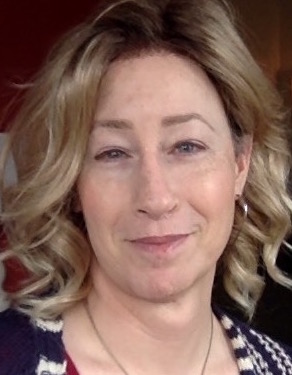I’m trying to imagine what it was like for Walt Whitman to kiss a man. Not
because I want to kiss a man
(and if I did, certainly not “one of the roughs,” the unwashed, uneducated type
Whitman preferred)
but because of how dangerous it must have been, how surreptitious it must have
felt, in whatever windowless room or corner of some uncultivated field at
the edge of a forest.
How wild and how private, even in their minds, there being no words—not
exactly, not yet—for what they were doing, even though Whitman knew
words for every class and phylum of weed, wildflower and leaf crunching
beneath the fuselages of their bodies on this cold earth.
And this other man—perhaps a blacksmith’s apprentice—certainly had no word,
unless it was just kissing,
yet isn’t that what men and women did? This was more like wrestling, a little rank
and sour, but good, though hard even to say that.
How exactly did you find another homosexual in 1850? Could you even have
called your loneliness “suffering”? Compared to what? What history
had Whitman of himself, and what future could he have possibly imagined?
He once gave a gold ring to a young man, pressed it into his palm, though the
man
had already given a ring of his own to the woman he would marry, and the two
men’s correspondence would fade with the seasons.
There were still younger men, soldiers in hospital cots, scared, missing limbs,
and Walt, kind stranger, hovered there
transcribing their last words to their mothers, leaning down to offer Earth’s final
kiss.
But most of all I wonder how he came to believe his desires were natural and
sacred, or was it something he knew in his gut?
Whitman, who knew more about the sacred than anybody, who could inhabit
anyone or thing—
the dung beetle, the soprano in the choir loft, the demented, the hunted slave—
but where, even in his universe, could a man kiss a man?
The icons on his apartment wall—the Buddha, Osiris, Jesus Christ—told him
what?
I only knew he told me It is as great to be a woman as to be a man. He
whispered up from the page
the shocking possibility of dignity, and not shame, while walking into a room in a
lace dress, using a higher voice,
using my eyes in a womanly way, meeting the eyes of others, then quickly
darting to some low modest place as I settle.
I wanted to blend into the scenery like a late flower—that self-possessed.
“If you die doing this,” someone said, “You’ll have lived for the right thing.”
But by then I was only wondering if I’d ever kiss someone again, and who that
would be, by what word
they would call me, and the surface beneath us—soft bedding? shifting metal
between cars of a train?
Would it be a fugitive kiss or the kiss of a goddess, or just two innocents, here in
the garden of everyone?








